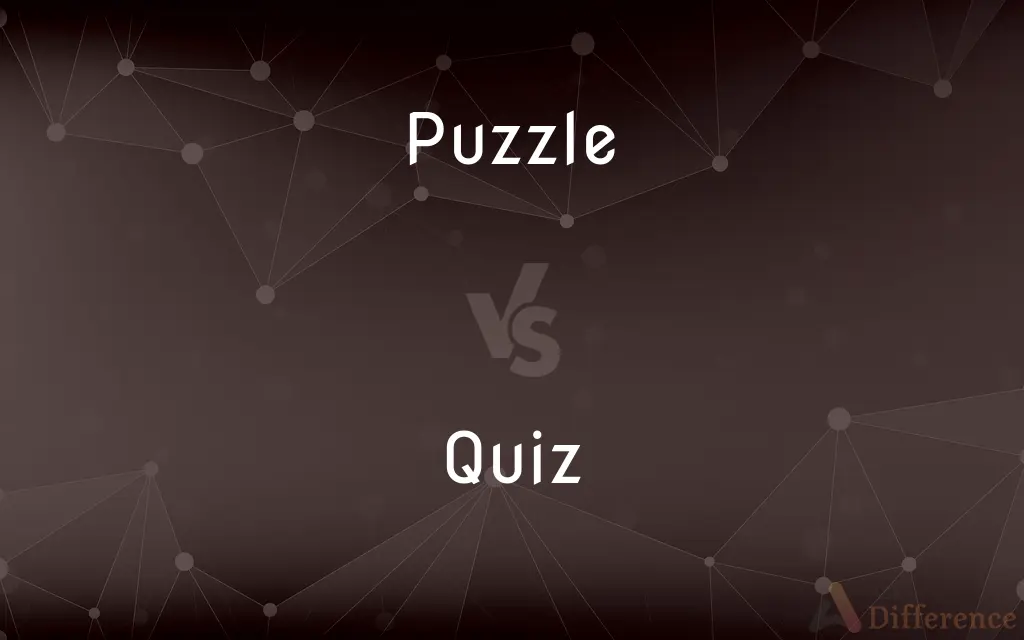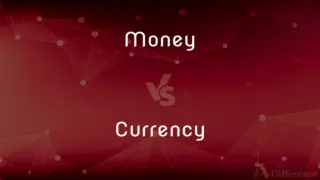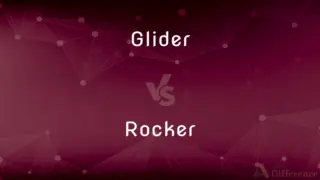Puzzle vs. Quiz — What's the Difference?
By Maham Liaqat & Urooj Arif — Updated on March 27, 2024
A puzzle is a problem or game designed to test ingenuity or knowledge, requiring problem-solving or lateral thinking, whereas a quiz tests knowledge or learning, typically through a series of questions.

Difference Between Puzzle and Quiz
Table of Contents
ADVERTISEMENT
Key Differences
Puzzles encompass a broad range of problem-solving activities, from jigsaw puzzles and crosswords to complex riddles and logic problems. They are characterized by their goal of challenging the solver's ingenuity, requiring the application of deductive reasoning, pattern recognition, or lateral thinking to arrive at a solution. On the other hand, quizzes are structured tests or assessments that pose questions to the participants, aiming to gauge their knowledge or understanding of a particular subject.
While puzzles often offer a single solution or a set of solutions achieved through a process of exploration and elimination, quizzes typically present multiple-choice questions, true/false statements, or short-answer questions with predetermined answers. This difference highlights the exploratory nature of puzzles versus the evaluative purpose of quizzes.
Puzzles are primarily designed for entertainment, educational enrichment, and cognitive development, serving as a form of mental exercise that can enhance problem-solving skills, attention to detail, and creative thinking. Conversely, quizzes are used not only for entertainment (such as in trivia games) but also in educational settings to assess learning outcomes, in surveys to collect data, and in various forms of assessments to determine knowledge levels or preferences.
The interaction with puzzles is usually a solitary or small group activity, focusing on the challenge and the satisfaction derived from solving. In contrast, quizzes can be administered to individuals or groups and are often used in competitive settings, classrooms, or as part of social events, where the emphasis is on assessing knowledge quickly and efficiently.
In essence, while both puzzles and quizzes engage the mind and require cognitive effort, puzzles challenge the solver to find solutions through problem-solving and lateral thinking, while quizzes test specific knowledge, understanding, or preferences against a set of predefined answers.
ADVERTISEMENT
Comparison Chart
Definition
A game or problem requiring problem-solving skills
A test of knowledge through questions
Goal
Challenge ingenuity and problem-solving
Assess knowledge or learning
Nature of Answers
Solutions found through exploration
Predetermined answers
Primary Use
Entertainment, cognitive development
Education, entertainment, assessment
Interaction Mode
Solitary or small groups
Individuals or groups, competitive or educational
Examples
Sudoku, crosswords, jigsaw puzzles
Trivia quizzes, educational tests, surveys
Compare with Definitions
Puzzle
A game requiring thought to solve.
A crossword puzzle involves finding words to fit into a grid.
Quiz
A series of questions testing knowledge.
A science quiz may include questions on various natural phenomena.
Puzzle
Designed to test problem-solving abilities.
Logic puzzles require deductive reasoning to solve.
Quiz
Can have multiple formats like multiple-choice.
Most standardized tests use multiple-choice quizzes.
Puzzle
Can be used for cognitive development.
Jigsaw puzzles help in improving spatial reasoning.
Quiz
Used for assessment in educational settings.
Teachers use quizzes to evaluate students' understanding of a topic.
Puzzle
Often has a single or limited set of correct solutions.
A Rubik’s Cube puzzle has a specific sequence for solving.
Quiz
Can be competitive, like in trivia nights.
Pub quizzes often involve teams competing on general knowledge.
Puzzle
Encourages creative thinking and patience.
Escape room puzzles challenge participants to think outside the box.
Quiz
Serves to quickly gauge understanding or preferences.
Personality quizzes assess traits based on answers to questions.
Puzzle
A puzzle is a game, problem, or toy that tests a person's ingenuity or knowledge. In a puzzle, the solver is expected to put pieces together in a logical way, in order to arrive at the correct or fun solution of the puzzle.
Quiz
A quiz is a form of game or mind sport in which players attempt to answer questions correctly about a certain or variety of subjects. Quizzes can be used as a brief assessment in education and similar fields to measure growth in knowledge, abilities, or skills.
Puzzle
Something, such as a game, toy, or problem, that requires ingenuity and often persistence in solving or assembling.
Quiz
A test of knowledge, especially as a competition between individuals or teams as a form of entertainment
A quiz show
A pub quiz
A sports quiz
Puzzle
Something that baffles or confuses; an enigma
The puzzle of the author's true identity.
Quiz
A practical joke or hoax
I am impatient to know if the whole be not one grand quiz
Puzzle
The condition of being perplexed; bewilderment
I'm really in a puzzle over how this happened.
Quiz
An odd or eccentric person
She means to marry that quiz for the sake of his thousands
Puzzle
To baffle or confuse mentally by presenting or being a difficult problem or matter.
Quiz
Ask (someone) questions
Four men have been quizzed about the murder
Puzzle
To clarify or solve (something confusing) by reasoning or study
He puzzled out the significance of the statement.
Quiz
Look curiously or intently at (someone) through or as if through an eyeglass
Deep-set eyes quizzed her in the candlelight
Puzzle
To be perplexed.
Quiz
Make fun of
Is it possible he has heard of my foible and is quizzing me?
Puzzle
To ponder over a problem in an effort to solve or understand it.
Quiz
To question (someone), especially closely or repeatedly
"His searching questions as he quizzed me on my work made me tongue-tied at first" (Susan Sellers).
Puzzle
Anything that is difficult to understand or make sense of.
Where he went after he left the house is a puzzle.
Quiz
To test the knowledge of by posing questions
Quizzed the class on state capitals.
Puzzle
A game for one or more people that is more or less difficult to work out or complete.
Quiz
(Archaic) To poke fun at; mock.
Puzzle
A crossword puzzle.
Quiz
A questioning or inquiry.
Puzzle
A jigsaw puzzle.
Quiz
A short oral or written test.
Puzzle
A riddle.
Quiz
(Archaic) A practical joke.
Puzzle
(archaic) Something made with marvellous skill; something of ingenious construction.
Quiz
(dated) An odd, puzzling or absurd person or thing.
Puzzle
The state of being puzzled; perplexity.
To be in a puzzle
Quiz
(dated) One who questions or interrogates; a prying person.
Puzzle
(transitive) To perplex, confuse, or mystify; to cause (someone) to be faced with a mystery, without answers or an explanation.
Quiz
A competition in the answering of questions.
We came second in the pub quiz.
Puzzle
(intransitive) To think long and carefully, in bewilderment.
We puzzled over the curious-shaped lock, but were unable to discover how the key should be inserted.
Quiz
(education) A school examination of less importance, or of greater brevity, than others given in the same course.
Puzzle
(transitive) To make intricate; to entangle.
Quiz
To hoax; to chaff or mock with pretended seriousness of discourse; to make sport of, as by obscure questions.
Puzzle
Something which perplexes or embarrasses; especially, a toy or a problem contrived for testing ingenuity; also, something exhibiting marvelous skill in making.
Quiz
To peer at; to eye suspiciously or mockingly.
Puzzle
The state of being puzzled; perplexity; as, to be in a puzzle.
Quiz
(transitive) To question (someone) closely, to interrogate.
Puzzle
To perplex; to confuse; to embarrass; to put to a stand; to nonplus.
A very shrewd disputant in those points is dexterous in puzzling others.
He is perpetually puzzled and perplexed amidst his own blunders.
Quiz
(transitive) To instruct (someone) by means of a quiz.
Puzzle
To make intricate; to entangle.
They disentangle from the puzzled skein.
The ways of Heaven are dark and intricate,Puzzled in mazes, and perplexed with error.
Quiz
To play with a quiz. en
Puzzle
To solve by ingenuity, as a puzzle; - followed by out; as, to puzzle out a mystery.
Quiz
A riddle or obscure question; an enigma; a ridiculous hoax.
Puzzle
To be bewildered, or perplexed.
A puzzling fool, that heeds nothing.
Quiz
One who quizzes others; as, he is a great quiz.
Puzzle
To work, as at a puzzle; as, to puzzle over a problem.
Quiz
An odd or absurd fellow.
Puzzle
A particularly baffling problem that is said to have a correct solution;
He loved to solve chessmate puzzles
That's a real puzzler
Quiz
An exercise, or a course of exercises, conducted as a coaching or as an examination.
Puzzle
A toy that tests your ingenuity
Quiz
To puzzle; to banter; to chaff or mock with pretended seriousness of discourse; to make sport of, as by obscure questions.
He quizzed unmercifully all the men in the room.
Puzzle
Be a mystery or bewildering to;
This beats me!
Got me--I don't know the answer!
A vexing problem
This question really stuck me
Quiz
To peer at; to eye suspiciously or mockingly.
Puzzle
Be uncertain about; think about without fully understanding or being able to decide;
We puzzled over her sudden departure
Quiz
An examination consisting of a few short questions
Quiz
Examine someone's knowledge of something;
The teacher tests us every week
We got quizzed on French irregular verbs
Common Curiosities
What is a quiz?
A quiz is a test or assessment made up of questions designed to gauge a person's knowledge, learning, or preferences in a specific area.
What is a puzzle?
A puzzle is a problem or game that challenges someone's ingenuity or knowledge, requiring thought and problem-solving skills to solve.
How do puzzles and quizzes differ in purpose?
Puzzles aim to challenge problem-solving abilities for entertainment or cognitive development, while quizzes assess knowledge or understanding.
Can quizzes be considered puzzles?
While quizzes test knowledge, they can have puzzle-like elements when they require problem-solving to deduce answers, but generally, they are distinct because quizzes primarily assess learned information.
Do puzzles always have a solution?
Most puzzles are designed with one or more solutions in mind, though the path to solving them can vary greatly.
Are puzzles or quizzes better for learning?
Both can be effective for learning: puzzles improve cognitive abilities and problem-solving skills, while quizzes help reinforce knowledge and assess understanding.
Can a quiz have only one correct answer?
Yes, many quiz questions, especially in academic settings, have only one correct answer, though some formats allow for multiple correct responses.
How are puzzles and quizzes used in education?
Puzzles are used to develop critical thinking and problem-solving skills, whereas quizzes are used to evaluate students' knowledge and learning progress.
What makes a good puzzle?
A good puzzle challenges the solver, is solvable with the given information, and provides a sense of satisfaction upon completion.
How often should quizzes be used in education?
The frequency depends on the educational goals, but periodic quizzes can effectively assess and reinforce student learning.
Can puzzles help with mental health?
Engaging with puzzles can reduce stress, improve mood, and provide a sense of achievement, positively impacting mental health.
What's the difference between a quiz and a test?
Quizzes are usually shorter, less formal, and cover less content than tests, which are more comprehensive evaluations.
Are quizzes always formal and structured?
Quizzes can range from formal, structured assessments in educational settings to informal and fun quizzes used in social settings.
How do digital platforms influence puzzles and quizzes?
Digital platforms have expanded the accessibility and variety of puzzles and quizzes, allowing for interactive and adaptive learning experiences.
Can puzzles be competitive?
Yes, puzzles can be competitive, especially in settings where individuals or teams race to solve them first, such as in escape rooms or puzzle competitions.
Share Your Discovery

Previous Comparison
Money vs. Currency
Next Comparison
Glider vs. RockerAuthor Spotlight
Written by
Maham LiaqatCo-written by
Urooj ArifUrooj is a skilled content writer at Ask Difference, known for her exceptional ability to simplify complex topics into engaging and informative content. With a passion for research and a flair for clear, concise writing, she consistently delivers articles that resonate with our diverse audience.















































